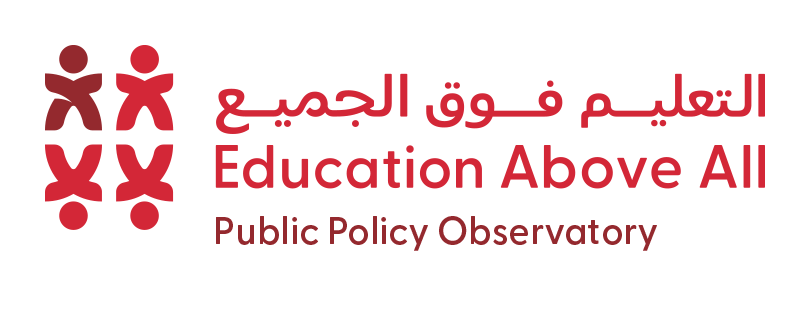Context
- Persistent Challenges in Teacher Education: Teacher education programs in developing countries, like Ghana, face longstanding challenges in achieving a balance between imparting content knowledge and providing practical, hands-on training. There is often inadequate commitment from implementers and government agencies due to an over-reliance on content delivery that neglects crucial elements such as pedagogical modeling, practical application, and performance-based assessment. This leads to a growing disconnection between the theoretical aspects of teacher education and the practical realities of classroom instruction.
- Dominance of Content-Based Teaching and Standardized Assessment: Historically, teacher education in Ghana has been heavily content-driven with limited emphasis on practical pedagogical training. Even with reforms aimed at a more holistic approach, including pedagogical training and practicum experiences, challenges like limited resources, resistance to change, and infrastructural deficits persist. Assessment practices have also tended towards standardized tests rather than authentic, performance-based evaluations.
- Inadequate Pedagogical Modeling: A significant issue is the inadequate implementation of pedagogical modeling, where teacher educators demonstrate effective teaching strategies. This is partly due to teacher educators themselves often lacking training and experience in innovative, learner-centered pedagogies, as many were trained under traditional, lecture-based systems. High course loads and limited time also hinder teacher educators' ability to implement interactive teaching methods.
- Underutilization of Performance-Based Assessments: While acknowledged, performance-based assessments beyond the practicum (Supported Teaching in Schools - STS) are often underutilized in teacher education programs in Ghana. Despite reforms emphasizing practical skills and competencies and including components like subject portfolios and projects, standardized end-of-semester exams still hold significant weight.
- Gap in Practitioner Expertise: Many teacher educators in Ghana lack direct experience as practitioners in early childhood and basic education, which can limit their ability to provide relevant practical guidance.
Solution
The study argues that GenAI can act as a catalyst for systemic change by addressing these challenges, with its potential to support content knowledge acquisition being central to enabling other critical roles.
- Supporting Content Knowledge Acquisition: GenAI can efficiently synthesize content and offer personalized learning experiences for Pre-Service Teachers (PSTs). Tools like ChatGPT are increasingly used by PSTs for content learning. By alleviating the burden of traditional content delivery, GenAI frees up time for teacher educators to focus on other crucial aspects. The role of the teacher educator shifts towards a facilitator of learning rather than a primary source of content.
- Promoting Pedagogical Modeling: With GenAI handling some aspects of content delivery, teacher educators can dedicate more time to demonstrating effective teaching strategies and techniques. This is vital in a context where lecture-based teaching has historically dominated. Teacher educators can model how to engage students in active learning, critical thinking, and problem-solving activities, better preparing PSTs for modern classrooms.
- Reducing Resistance to Change: GenAI can encourage engagement with practical teaching aspects by fulfilling the content-based learning needs that teacher educators often prioritize. If students can readily access content through GenAI, the focus of in-class teaching must shift towards practical, hands-on learning like pedagogical modeling, making it a critical component of teacher education.
- Facilitating Performance-Based Assessments: GenAI can support a move away from overreliance on standardized testing by enabling project-based assessments, portfolios, and presentations. This shift aligns with student-centered, practical learning approaches recommended in the curriculum.
- Enhancing Resources Acquisition: As the focus shifts from content delivery, teacher educators will be motivated to seek and incorporate diverse resources and materials that support interactive and experiential learning. GenAI can potentially assist teacher educators by automating and aligning Open Educational Resources (OER).
- Encouraging Digital Literacy and Critical Thinking: Integrating GenAI into teacher education programs will encourage PSTs to engage with digital tools and resources, enhancing their digital literacy. Interaction with GenAI can also enhance their complex critical thinking and problem-solving abilities. Teacher educators can use GenAI to create scenarios that require analysis and application of knowledge.
- Supporting Teacher Professional Development: GenAI can provide flexible, self-directed professional learning opportunities for teacher educators, allowing them to continuously update their skills and knowledge.
Potential Impact
- Immediate Impacts:
- Alleviating the burden of content knowledge acquisition for PSTs.
- Freeing up time for teacher educators to focus on pedagogical modeling and performance-based assessments.
- Potential disruption of entrenched, lecture-based teaching practices.
- Increased demand for practical and modeling approaches in teaching.
- Enhanced digital literacy and critical thinking skills among PSTs.
- Long-Term Impacts:
- Equipping PSTs with relevant pedagogical skills.
- Enhancing the learning outcomes of their future K-12 students.
- Bridging the gap between education and the skills required in the workforce.
- Potential reduction in unemployment.
- More motivated teachers engaging students in meaningful ways.
- A shift towards more authentic, performance-based assessment at all levels.













